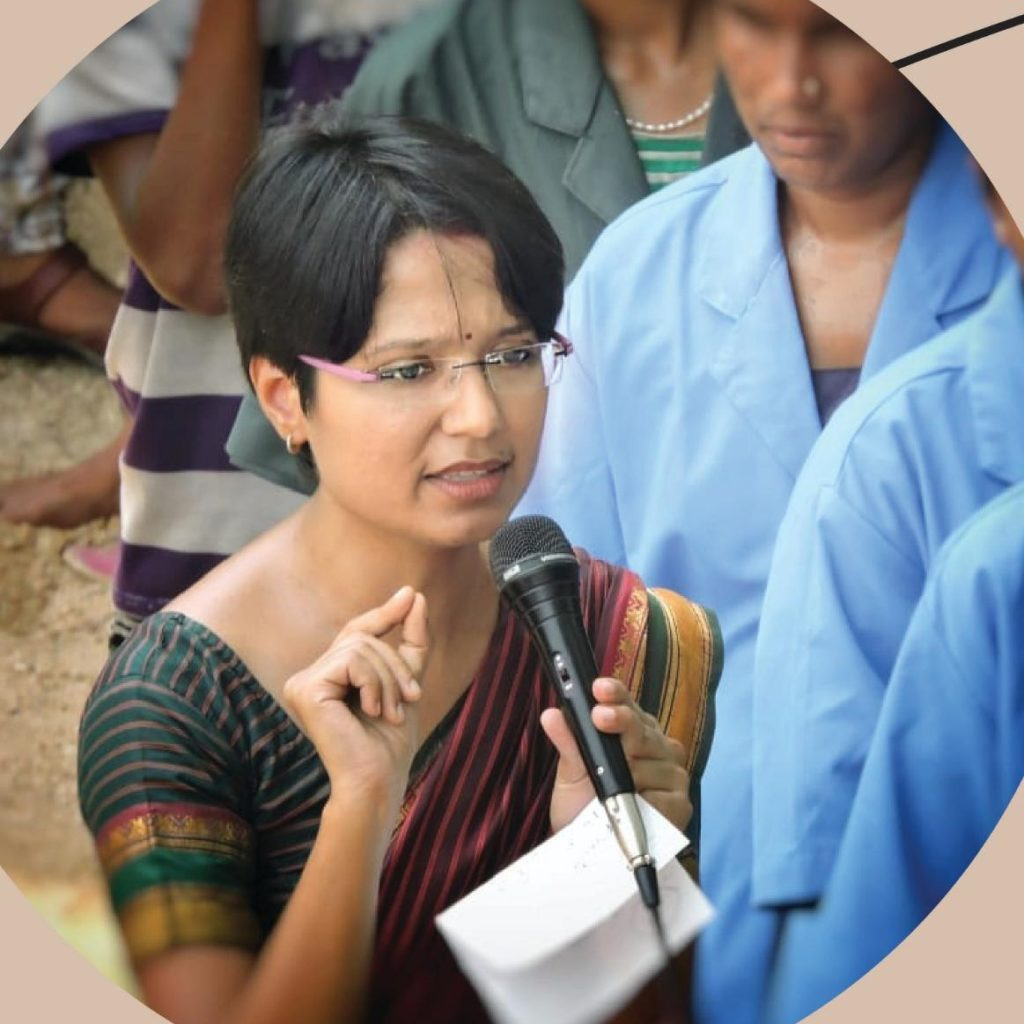“Bacche ka naseeb hai ki woh jeeye ya mare, aspatal aane ki zaroorat nahi hai” was a phrase which shocked Dr. Taru Jindal each time she heard it in the first few weeks of her time in Masarhi, a district in Bihar. Tasked with setting up a health centre in previously unserviced Masarhi, Dr. Jindal had set to work expecting the residents to welcome primary healthcare facilities at their doorstep. Instead, she found herself struggling to understand the complex webs of caste, hierarchy, patriarchy, and superstition that made the residents hesitant to any change or development. Even as patients trickled into her health centre, expectant mothers were conspicuously absent from her Delivery Room. Having been the driving force behind transforming Motihari District Hospital from one that was barely functioning to the best in the district and a winner of the Kayakalp award, Dr. Jindal realised that just being a doctor wouldn’t be enough in Masarhi, she needed to be seen as a member of the community first.
The statistics that backed this grim tale further highlighted the scale of the task. According to the National Family Health Survey conducted in 2015-16, only 3 percent of rural women in Bihar received full antenatal care. This neglect of maternal and child care had led to a situation where 60 out of every 1000 children died before the age of five (as found by the National Family Health Survey); a fact which in turn explained the many perpetually-pregnant, exhausted, undernourished women in Masarhi.
Dr. Jindal’s first move was to launch multiple campaigns centered around the spirit of communal donation. Drawing on the works of Vinoba Bhave and Mahatma Gandhi, she instituted two separate practices of Shramdaan, or donating labour to sweep the village and keep it clean, and Bhoodan, or donating small parcels of uncultivated land on which food would be grown to curb malnutrition in the village children. Seeing her and her team pick up brooms to sweep the village and till the fields, not for personal gain, but societal benefit won over some of her sceptics. And yet, her Delivery Room remained empty.
Conversations with local mothers, carried out in house visits, finally revealed the true story. While the villagers were okay coming to the health centre for regular ailments, something as momentous as bringing life into being was only entrusted either to the mother-in-law or dai, the community midwife. If people had given birth at home for a millenia, what was the need to take our bahu to the Bombaywalee doctor? Dr. Jindal realised that she would have to transcend her role as a clinic-bound doctor and step into the larger role of community physician to win the trust of not just the pregnant woman, but also her mother-in-law, who very often was the decision maker of the house.
Dr. Jindal recalled the custom of organising a Godh-bharai or baby shower as a celebration of pregnancy and motherhood. A Samuhik Godh-bharai or community Baby Shower which would convey messages through songs, dance, and incorporate local customs to gain acceptability, seemed the way forward. Word was spread to about two hundred expectant mothers and their mother-in-laws about the godh-bharai with packets of colourful sarees, bangles, combs, and more, promised as incentive to turn up. Short songs and acts were prepared by her team to convey the importance of pregnancy checkups and hospital delivery.
Any doubts about the success of this were allayed within the first few hours of the designated day. Women poured in with their relatives, excited to learn more in a safe-space where they could be feted. Dr. Jindal was struck by the realisation that this was probably the first time that these young mothers had been celebrated, made the centre of attention, or made to feel important since perhaps the day of their marriage. As the women laughed, sang, came on stage and applied aalta on the feet of their pregnant bahus, there was a palpable sense of a bridge being built between care giver and receiver. Here, there were women celebrating their femininity and rejoicing in others. Dr. Jindal took the stage and informed the mostly agrarian crowd that as a seed is borne through regular care and watering, so too is a child nourished with regular care before, during, and after birth. The beaming smiles that greeted her and the grateful hands that hugged her as the day wound to a close allowed her to nurture hope that perhaps an inflection point had been reached.
Very soon, the previously barren labour room got its first trickle of visitors, a trickle that soon became a stream, which soon became a regular flow. As mothers received expert and compassionate delivery care for the first time in their lives, their trust in their doctor became a cornerstone of their pregnancy. People in Masarhi might have given birth at home for millenia, but Dr. Jindal had succeeded in turning the labour room into an extension of their home.

